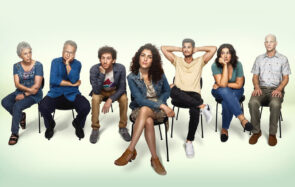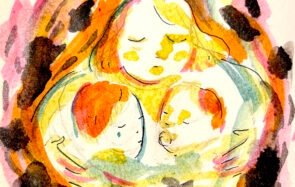I have written a lot about Jewish women and feminism and what it means to both advocate for women in a patriarchal society as well as advocate for women who appreciate
halakhic
structure in their lives. I consider myself both a feminist in the classical sense and a woman who appreciates halakhic Judaism in the classical sense. Sure, it’s an unusual mix, but you know what? There are no rules about how any of us “should” be. I don’t shave my legs and never have but I also like covering my head in synagogue and praying separately from men by a mehitzah (divider). I hate misogyny and patriarchy and feel oppressed by it daily, but I also celebrate the distinctions of sexuality and modesty that Judaism lays out for men and women. I love Hilary Clinton and Gloria Steinem but I also love Maimonides and all of the Sages of Judaism who lived in times when women had no voices. I’m a conundrum. I am so many things, and all of them are me, so none can be “wrong.” Yes, it’s sometimes confusing to feel pulled in so many directions, but it’s also OK to experience that tension and to feel so many different things and want to be respected for all of my complexity: intellectual, spiritual, sexual, personal; all of it. I am a Jewish woman, hear me roar! There is an organization called JOFA (www.jofa.org) which stands for Jewish Orthodox Feminist Alliance which seeks to discuss and support all of these types of issues and I am so happy they exist. JOFA is having a conference in New York this December which you can learn more about here. I can’t be there because
The Big Bang Theory
will still be filming at that time, but some of the issues they plan to tackle at this conference include: – Raising feminist children, and feminists raising children – Creating new rituals in the mikveh – Eating disorders in the Jewish community – LGBTQ (shared experience of LGBTQ and feminist communities) I highly recommend you go and that you spread the word to Orthodox communities about JOFA. There is nothing sacrilegious or “counter-culture” about exploring issues of feminism and Orthodoxy, and it can only increase your love and appreciation for a religious tradition and a notion of a God that can hold all of us, with all of our complexity and tension. Thank you, JOFA, for bringing to light so many critical issues in Judaism!
Love Mayim? Get her latest blog posts delivered straight to your inbox.







